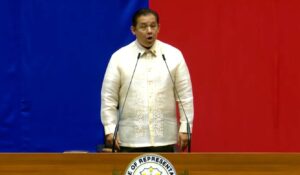
In a significant push for economic equity, labor groups across the nation have united to demand a substantial increase in the minimum wage, arguing that current levels fail to meet the basic cost of living for families. This collective call for change, championed by the National Wage Coalition (NWC), also challenges the prevailing narrative that attributes business failures to rising labor costs.
Urgent Call for Wage Reform
The NWC’s proposal for a P150 legislated wage increase has become a central issue, with the House Committee on Labor holding multiple hearings to address this adjustment. Despite these efforts, the proposal faces resistance from investors who claim that higher wages would precipitate financial losses. This opposition has spurred labor advocates to confront the misconception that wage increases are a primary driver of business closures.
Shifting the Narrative on Labor and Economy
Annie Geron of the Public Services Labor Independent Confederation (PSLINK) voiced concerns about the frequent scapegoating of workers during economic debates. She highlighted that other significant production costs, such as electricity and transportation, often receive more government subsidies and contribute more substantially to business expenses than labor costs. This perspective challenges the traditional view and calls for a more balanced understanding of economic pressures.
Economic Evidence Supporting Wage Increases
Economist Emmanuel Leyco, a former Social Welfare undersecretary, provided crucial testimony at a Congressional hearing, noting that there is no substantial evidence linking wage increases to business closures. Instead, he pointed out that labor costs are frequently overlooked in the broader context of production expenses, suggesting that the focus should be on creating a more equitable economic framework that benefits all stakeholders.
Labor Rights and Living Standards
Carlos Miguel Oñate from the Trade Union Congress of the Philippines (TUCP) underscored the disparity between the current minimum wage and the actual cost of living, noting that wages in nearly all regions fall below the government’s defined poverty threshold. This gap highlights the urgent need for wage reform to ensure that workers can provide adequate nutrition and basic needs for their families.
Conclusion
The concerted efforts of various labor groups to advocate for a nationwide wage hike reflect a broader movement towards economic justice and fairness. By challenging outdated economic narratives and pushing for substantial legislative changes, these groups aim to ensure that all workers receive fair compensation that reflects their contribution to the economy. The ongoing debate in the House Committee on Labor represents a critical juncture for these efforts, with potential implications for the livelihoods of millions of workers across the nation.





















Comments are closed for this article!